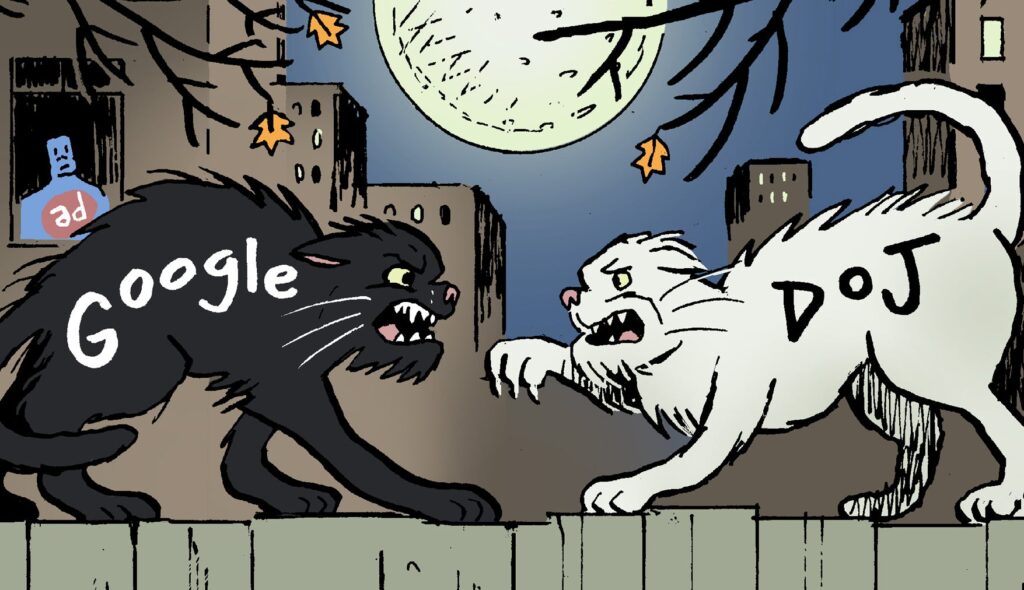If a government agency could find itself on the Inc. 500 list of fastest growing companies, Florida’s Attorney General’s CyberFraud Task Force would have a strong case for inclusion. As you might recall, upon the group’s unveiling last year, it announced revenues of $1 million courtesy of an agreement reached between the CyberFraud Task Force and Internet marketing firm AzoogleAds. In January of this year, the Florida CyberFraud Task Force equaled its 2007 take with a similar size agreement reached between once-Florida based The Useful, now officially named World Avenue. The first transaction, between Azoogle and the Florida Office of the Attorney General, focused on mobile subscription services marketed to Florida users, the latter on World Avenue’s lead generation practices. In the CyberFraud Task Force’s Series C funding, they returned yet again to the arena of mobile subscription services, or using the catchier and more insidious phrasing, "free ringtones." Not content with mere one million dollar transactions, and keeping within the announcement every eight weeks or so, the Office of the Florida Attorney General announced earlier this week on leap year day that they reached another seven-figure payout, this one for two and a half times more money than the previous deals. Instead of the money coming from a marketer, this one came from one of the major telecom companies, AT&T, $2.5 million worth for the Task Force and another $500,000 "toward consumer education on safe Internet use." Florida Office of the Attorney General 2007 Revenues – $1 million. 2008 – $3.5 million through two months.
Here’s a link to the official release. Kudos to Florida Attorney General Bill McCollum for figuring out a low-hanging fruit industry that allows him to gain the type of notoriety that current New York Attorney General Cuomo enjoys while trying to ascend to the almost legendary status of Cuomo’s predecessor Elliot Spitzer. Unfortunately, though, from an outsider’s perspective, which in this case means one within the industry but outside of the self-perpetuating cycle of settlements, they seem to take themselves a little too seriously. Just read the first line of the release, for it states, "In a significant step toward protecting consumers throughout the nation from unauthorized charges on cell phone bills, Attorney General Bill McCollum today announced that AT&T Mobility will be the first wireless company in the nation to police representations made in Internet advertising for cell phone content to ensure fair and full disclosure." Later in the release, it reads, "Complaints received by the Attorney General’s CyberFraud Task Force led to an investigation which showed that thousands of Florida AT&T Mobility consumers had received charges on their cell phone bills for certain third party services that they did not authorize." If this last part is true, then it makes sense, but the way that most of these reports read, they make it sound as though the issue stemmed from unauthorized downloading as opposed to companies profiting off the high appeal and ease with which these services can be obtained without reading all the disclaimers.
Continuing with our look at the salient points of the release, this statement will come as no surprise. "Investigators further determined that these third-party content offers often target teens who frequently respond to these advertisements because they think the services are “free,” and download them to their cell phones, not knowing their parents will later be charged." This is a classic causality mistake, but an understandable one. Except for one banner that I saw, the marketers didn’t target teens. Teens have cell phones. They are the largest consumers of ego related goods and savvy when it comes to using their phones. It makes sense then, that ads offering services that interest them with a low barrier to entry and high quantity of choice would do well on sites where they surf. That in turn causes more ads of the same nature to appear. Perhaps, it’s a weak argument in some people’s minds, but performance marketers,for all their sophistication target only by performance not by demographic profiling. AT&T gets blamed in this for allowing the process to occur, for making money and not proactively protecting the consumer. And, as a company with big pockets, it meant there stood a chance they’d settle, especially considering that a) the revenues from mobile subscription services are a drop in the bucket for them and not worth fighting, and b) by going first, it means that Attorney McCollum will focus on someone else for the even bigger payday, which is no doubt on the horizon. One thing to note though, while the article mentions ringtones, this is the first one to discuss other mobile subscription services. In addition, they provide what they feel are examples of deceptive ads, and they include the Advertiser Rewards Network, which does run a free ringtone offer. They didn’t specify what about the offer they found deceptive, but it does imply Atrinsic’s (The new Traffix + Mobile Sidewalk)legal team is currently busy. As a reaction, some networks even stopped running this offer.
The day of the AT&T release, the mobile division of the former Ma’ Bell wasn’t the only one making news with regards to ringtones. In what amounts to perhaps ironic timing, an enabler in the process of marketing ringtones found itself one of two key characters in a segment done by CBS Evening News. Luckily for one of them, they have quite a bit of experience with the press. Media Breakaway founder and founder of its subsidiary the well known CPA Empire, Scott Richter, became the unlucky punching bag for quite a bit of uninformed commentary in this five minute expose on ringtones. Unfortunately for CBS, their shoddy research only leaves Richter better off in the long-run, as their insinuations imply activities belonging to CPA Empire that are not the case. We’ll leave their choice of picture for another time. The Verizon spokesperson comes off a little more favorably just out of touch with the minutia, which, along with the expose as a whole, will only fuel the work of the Florida money collection team. Like the recession, this mess has only begun. Florida will continue to go after more money from different layers on the value chain, and their success will only prompt others. While profitable, companies didn’t make enough to pay every state a substantial amount. And, with the focus being on large payouts, it won’t produce the desired impact of increased corporate responsibility and governance. It will only mean fewer opportunities and less collaboration and openness. In the meantime, to anyone operating in the field, be smart, be safe, and save your money.



